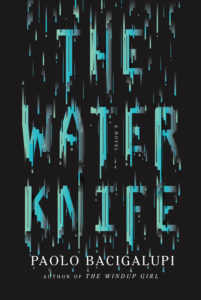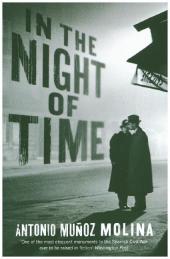Science Fiction
Hachette
June 2015
Paperback
 For someone who quite enjoys science fiction movies, I sure don’t like thinking about the future. It’s scary, it’s worrying, and in order to live my life without being cripplingly depressed I do have to become one of those head-in-sand people about some things. This is especially the case when it comes to near future climate change fiction, a genre I pointedly avoid. But it’s not just earth futures; it’s space as well, that unfathomably huge universe. Nothing against space personally, I just don’t need an existential crisis right now. Thanks.
For someone who quite enjoys science fiction movies, I sure don’t like thinking about the future. It’s scary, it’s worrying, and in order to live my life without being cripplingly depressed I do have to become one of those head-in-sand people about some things. This is especially the case when it comes to near future climate change fiction, a genre I pointedly avoid. But it’s not just earth futures; it’s space as well, that unfathomably huge universe. Nothing against space personally, I just don’t need an existential crisis right now. Thanks.
Paolo Bacigalupi’s The Water Knife, then, was a book I took up hesitantly for fear it would just upset me. Set in water-starved Arizona in a future where the United States has all but dissolved and swathes of people are fleeing death by dehydration, it is a grim view of the future indeed. The powers of Nevada, California and Arizona vie for drips of the Colorado river. Ruthless Angel, employed by Nevada, arrives in Arizona to chase up rumours that a new water source has been found. Lucy, a journalist, is chasing similar leads in her quest to uncover the truth behind Phoenix’s ever-increasing bodycount. Maria, a Texan refugee, tries to eke out a living selling water, fighting to survive Phoenix’s dangerous underworld. The plots of these three characters intertwine as they are all embroiled in the desparation and violence of a city in its death throes.


